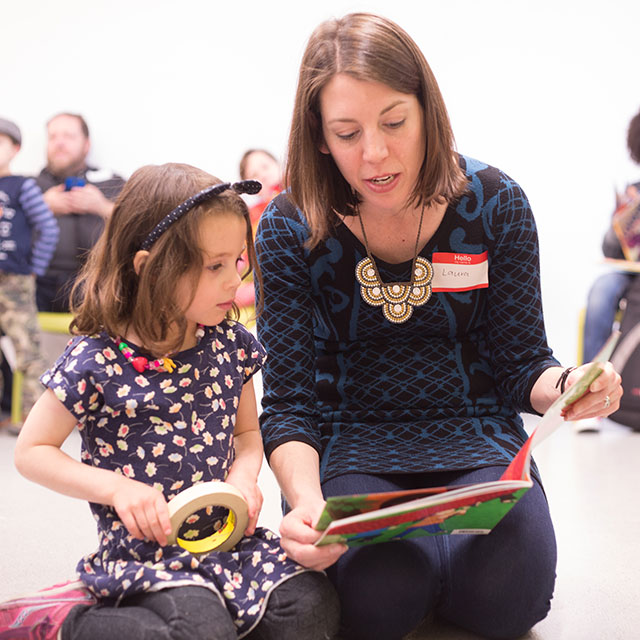We Stories Working Toward a New Narrative for St. Louis
Our early experiences provide the building blocks for the adults we will become. Our habits, basic beliefs and attitudes are rooted in childhood. For Laura Horwitz and Adelaide Lancaster, this critical time is when an appreciation of diversity and understanding of race can take hold and lead to a more equitable, integrated society.
In 2016 – following the Ferguson unrest – the pair founded We Stories (www.westories.org) as a way to bridge the disconnect between white families in St. Louis and those of color. YouthBridge became the organization’s first fiscal sponsor and has supported since through grants and community connections.
“There are many people with a vision of St. Louis as a place where all families thrive, regardless of race. When we asked ourselves what role we could play, we gravitated towards supporting white parents in opening conversations with their children about race, specifically through books,” says Horwitz.
The result was a 12-week Family Learning Program, built on research, which introduces parents – and their children from birth to age 8 – to children’s literature that feature diverse characters, provides supportive materials to help start and strengthen family discussions about race and racial biases, and offers an online community and in-person events to broaden those conversations. Nearly 900 families have participated in the program to date.
“The biggest barrier for parents is not knowing where to start and the fear of doing it wrong,” says Horwitz. “We are providing tools and recommending books that can help parents develop comfortable vocabulary in acknowledging and describing differences.”
A couple of titles recommended are We’re Different, We’re the Same by Bobbi Jane Kates and Shades of People by Shelley Rotner. Also included are character driven and real-life stories about kids of color, such as Ron’s Big Mission, the story of Challenger astronaut Ron McNair’s peaceful protest of segregation in his local library as a 9-year-old boy. Through partnerships with the St. Louis County and Kirkwood Public Libraries, We Stories has developed “We Stories kit libraries” covering more than 26 different themes, and patrons can search We Stories curricular titles in the library databases. As a result, circulation of diverse titles in both systems has dramatically increased, says Horwitz.
“Our hope is that parents will build on this knowledge to create a family culture of not only awareness and empathy, but also engagement and intervention. We know that change takes hold when new habits become normal and are passed down to the next generation, and we are already finding a significant difference in the bias trajectory,” says Horwitz, pointing to a current study underway with Washington University’s Cognition and Development Lab.
“One important finding is that toddlers in our program are as likely to choose books and toys depicting Black characters as white, compared to white kids in the general population, who show a significant preference for white toys or characters over similar options that depict Black people.”
